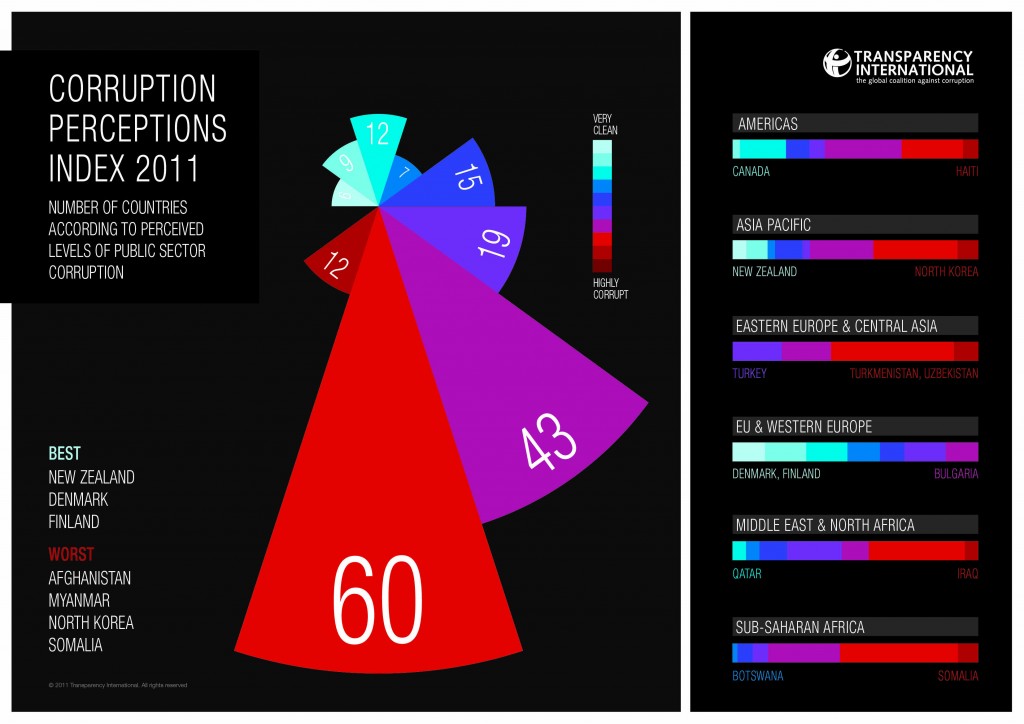My first week at SA has involved some pretty upsetting investigations into the social and environmental cost of cotton production in Uzbekistan. I quickly became aware of how the government’s position contrasted with the voice of campaigners and activists. Despite denials by the government, the exploitation of the Uzbek people continues and systematic corruption is repeatedly cited as a barrier to change. I was not surprised to discover that Uzbekistan was ranked among the top 3 most corrupt countries in the 2011 Corruption Perception Index (CPI), from the 183 countries surveyed by Transparency International.
The CPI calculates the perceived level of public sector corruption in each country, covering a broad range of acts where public office is used for personal gain. A score is calculated that combines research information provided by a range of expert and independent sources. The perceptions approach is necessary as participants in corruption are not usually forthcoming with data, and many acts of corruption are never exposed. Further details of the study and its methods can be found here.
The CPI provides an annual global corruption map from which further research and discussion can begin. As each country is scored with a single figure, the relationship of corruption to other global indices, such as the (UN) Human Development Index, extends our understanding of the consequences of corruption. Furthermore the index acts as a tool to inspire action, engagement, and awareness of this important issue. Corruption not only damages a country and its people by diverting funds from the public purse and the mainstream economy, it also removes routes of accountability and thus strips people of the power to oppose. In many countries where change is desperately needed, public sector corruption is a major hurdle in achieving this.
Ted Talk : Peter Eigen (Founder of TI): How to expose the corrupt
United Nations Economic and Social Commission for Asia and the Pacific (UNESCAP) [pdf]: Corruption: Causes, Consequences and Cures
Organisation for Economic Co-operation and Development (OECD) [pdf]: Istanbul Anti-Corruption Action Plan Uzbekistan: Assessment and recommendations




